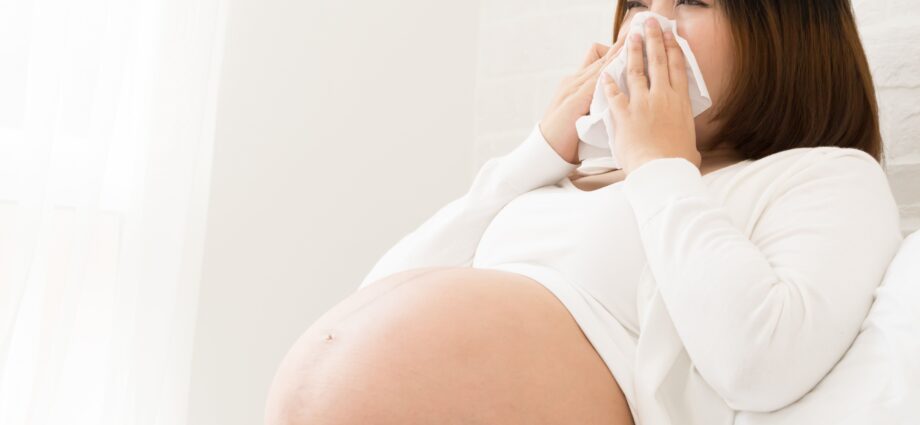Contents
How to relieve nasal congestion in a pregnant woman
A nasal congestion in a pregnant woman can provoke an infectious disease, allergy, or an individual reaction to a change in hormonal levels. Many medications are prohibited during pregnancy, but there are ways to improve nasal breathing and get rid of discomfort.
Causes of nasal congestion during pregnancy
Rhinitis in pregnant women is most often the result of swelling of the mucous membranes of the nose.
A nasal congestion in a pregnant woman can be caused by hormonal changes in the body.
Inflammation and swelling of tissues can develop as a result of:
infectious diseases,
an allergic reaction
hormonal changes in the body.
Nasal congestion in pregnant women not only creates certain discomfort, but if nasal breathing is difficult, the body will not receive up to 30% of the required oxygen. It is necessary to treat rhinitis, but you should not do it yourself – only a qualified doctor will tell you what you can do for pregnant women with nasal congestion and how to ease nasal breathing without harming the health of the expectant mother and her baby.
How to relieve nasal congestion in pregnant women?
Only a doctor can identify the cause and prescribe treatment for rhinitis in pregnant women.
If rhinitis occurs against the background of an infectious or cold disease, medications that are safe for the health of the mother and baby are prescribed.
If the cause of the edema is an allergic reaction, it is necessary to exclude all contacts with potential allergens – plant pollen, dust, tobacco smoke, animal hair, household chemicals and some food products.
In the event that the causes of nasal congestion could not be established and chronic rhinitis is a consequence of hormonal changes, non-drug methods will help to alleviate the condition of the expectant mother. What can pregnant women with nasal congestion? Breathing can be made easier by:
Compliance with the drinking regime. Drink at least 2 liters of water per day, and you will have to give up drinks containing caffeine.
Maintaining adequate humidity in the room. Frequent ventilation and special devices for humidifying the air will help.
Moderate physical activity. Hiking or light exercise improves circulation and helps reduce swelling.
Rinsing the nose with saline.
Breathing exercises.
Nasal congestion during pregnancy is a reason to see a doctor. He will help identify the causes of rhinitis and prescribe adequate treatment.










